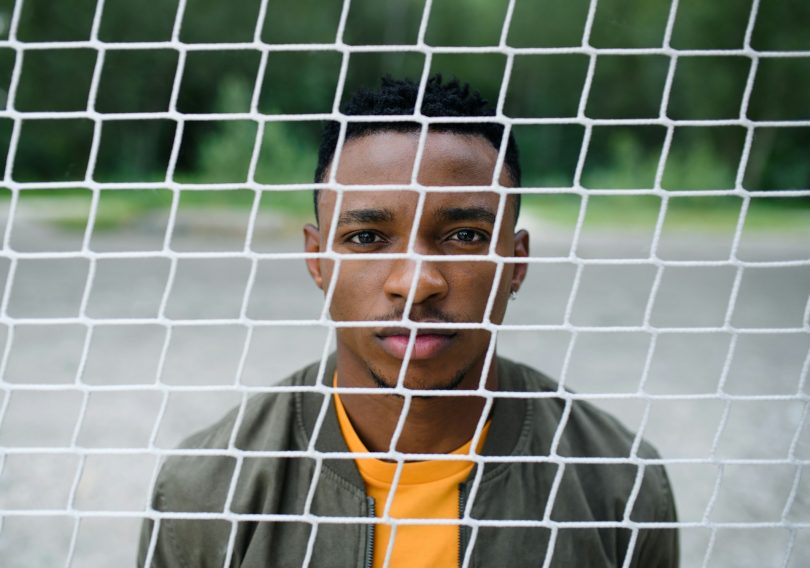Being home should feel safe and sheltering. But for some, returning to their family is stressful. One of the most profound and silent challenges faced by the Black LGBTQ community is family rejection, which, in turn may result in a mental health decline. I am sure that this is something that resonates deeply with those who find themselves in the middle of these marginalized sexual identities.
Black LGBTQ Members and Family Rejection
Research has consistently shown that 50% of LGBTQ youth coming out are likely to get rejected by their families and are using college and school as their refuge. There, as “freedom” starts to unfold, they can dress however they want, date whoever they want, and even have access to medical attention they couldn’t previously get. It is practically where the Black LGBTQ youth find themselves and feel comfortable in their skin. When school closes, and it’s time to return home again, it gets traumatizing for those going back to unaccommodating and even hostile families.
San Fransisco University’s research branch, Pediatrics, conducted research on LGBTQ adults who were rejected by their families after coming out as youths. Research conducted indicated:
- higher rates of attempted suicide,
- higher levels of depression,
- 3.4X more likely to use drugs, and
- have a higher rate of unprotected sex compared a non-LGBTQ individual not rejected by families.
For the Black community, there is an added layer of complexity. Not only does the Black LGBTQ community deal with the pressure of their sexual identity but also their racial identity, which makes it even harder to find acceptance by families and the community.
Why Black LGBTQ Community Faces Family Rejection
In many communities, especially the Black community, there is a belief that LGBTQ is wrong, abnormal, and unethical. To understand this, we have to go back to the roots. The Black community has, over centuries, been through discrimination and oppression that have shaped cultural dynamics and strict traditions. Gender norms, in particular, have been very rigid, conforming the two assigned genders to different roles and expectations.
Older generations grew up at times when non-heterosexual visibilities were much less visible. Lack of exposure to different identities and perspectives has also contributed to the negative attitude where families are currently struggling to accept and understand LGBTQ members.
Although it is tough for such families to understand something different from what they know as “right”, it does not make rejection from them any less painful.
Now, you do not have to have raised children to know that parenthood and family come with unconditional love tied to its core. Of course, sometimes that means disapproval and sometimes fury and disappointment. But it should by no means come to rejection and abandonment because of sexual orientation.
5 Ways to Deal With Family Rejection
A well-worn cliche says that parents know what is best for their children. But I disagree. I once met a young man who painfully narrated a tale of his father, who constantly referred to him as a “gay bastard” after he came out as gay. Listening to how parents place their rights to their baseless bigotry ahead of their child’s well-being for them being nonbinary is horrible.
- Exposing the myths
There are still many myths around LGBTQ. Many parents believe that being gay is a puberty stage their child will eventually grow out of as they get older or an “infection” from association with other members of the LGBTQ community. Once these myths are addressed, the cloudy vision of gay children and relatives will clear out.
- Education and awareness
Education is the key, and in this case, to unlocking diversity and inclusivity. Community events such as panel discussions, movie nights, or workshops focusing on the issues within the Black LGBTQ community. Pride celebrations within the community are a great way to break down stereotypes.
- Cultural empowerment
Collaborating with different artists and musicians to showcase the beautiful LGBTQ talent and creativity would be a great way to preach acceptance. Events that blend effortlessly with the Black community and heritage, such as dance performances, art exhibitions, and storytelling sessions, will help embrace LGBTQ identities.
- Encourage open conversations
Finally, Let us create spaces where everyone feels free to ask questions, explore their curiosity, and make contributions around the LGBTQ topic. When we keep the open heart-to-heart conversations going, it creates a space where everyone feels loved, heard, and accepted. It also helps clear out any questions and doubts about being a member of the LGBTQ.
- Focus on Self-Acceptance
Acknowledging that the rejection is not as a result of something being fundamentally wrong with you is important. Embrace your LGBTQ and human rights to help you set healthy boundaries. Then, spend more time exploring your identity and exemplifying your authenticity. Above all, be patient and allow yourself to heal and get through the challenging times.
What’s Next After Rejection?
If you can’t find love, comfort, and support from your family, it does not translate to being alone. There are plenty of resources, both online and in-person communities, that relate to your situation and are all out to help and support you. Nowadays, most local communities are setting up LGBTQ centers for group meetups to find a sense of belonging.
Dealing with intolerant family members can be painful; you do not have to go through it alone. Reach out to a therapist or counselor if you are struggling with mental health issues. They will teach you how to process your emotions and healthily deal with negative emotions.
For resources on how you can be part of changing the perception of LGBTQ within the Black community, see the links below.
https://lesley.edu/article/the-cost-of-coming-out-lgbt-youth-homelessness
https://www.sfaf.org/collections/beta/dear-rejected-in-san-francisco








